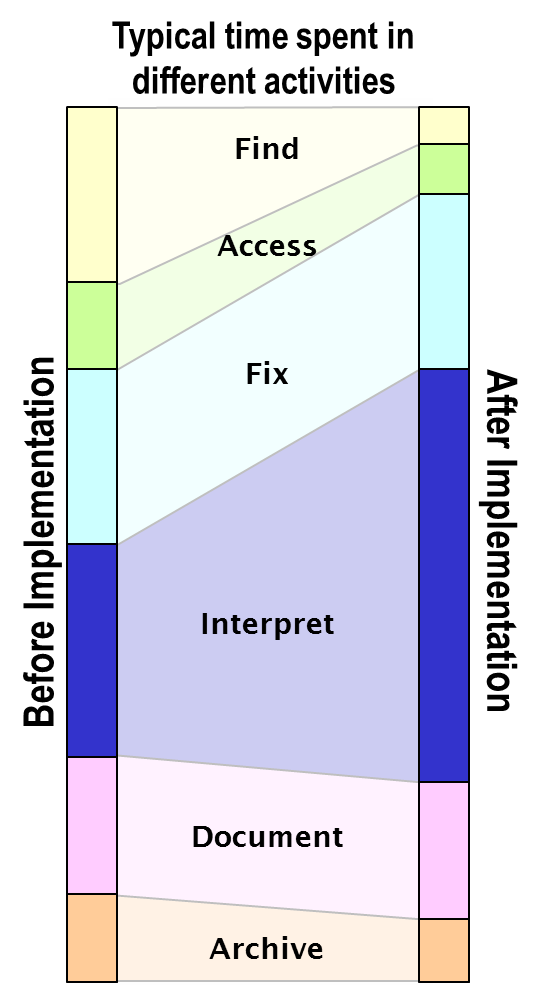
| Home | FAQs | Book Contents | Updates & News | Downloads |
When dealing with information the normal accounting rules often don't apply. Take for example, the best estimates of the amount of oil left to be produced in the world, according to the "BP Statistical Review of World Energy - June 2013"◊ the amount of unproduced oil reserves increased by 60% from 1992 to 2011 (despite the volume of oil that was extracted in that period). Of course this apparent inconsistency comes from the fact that information is involved, each refinement in knowledge reveals further potential reserves increasing the overall estimate.

This type of counter-intuitive dynamic explains why an apparently reasonable approach to justifying investment in information handling systems has never actually worked. The tactic I'm talking about is the "time budget": first the proportion of time that a geoscientist spends performing various data related activities is measured; an estimate is made of how a new system will decrease the "unproductive" time spent searching for and accessing the data; finally the consequent increase in "productive" time is multiplied by the number of staff affected to estimate the total financial benefit delivered.
This method has been used to justify new systems for at least the last 20 years. However recently it has been meeting an increasingly sceptical response from the senior executives that hold the budget for these projects. One issue is that over the last two decades, despite repeated investment, the proportion of time spent "finding" and "accessing" data has stubbornly refused to drop, twenty years ago this was 40% or so, and it still is today. The real issue is that geoscientists are not simplistic machines that find a defined set of pieces and assemble them blindly; they are intelligent beings looking for new bits of evidence to enlighten their concepts of what is happening in hidden places. Every recommendation they make has risk and so their focus is on reducing that "unknown" as far as they can. Additional evidence helps reduce that "sub-surface" risk, so if they find data quicker that just frees up more time to gather extra material. Time spent identifying evidence and ensuring its validity is not really "unproductive", it informs the process of interpretation. Increasing "interpretation" time won't necessarily lead to better corporate outcomes. Finally, of course, while geoscientists might believe that their productivity is the driver of corporate success, in most oil companies some other limitation is more crucial, or at least appears to be from the viewpoint of the budget holders.
If you are trying to build a business case for implementing a new information system you should avoid using the "time budget" approach. Firstly, your audience may be sceptical, but more importantly you should be wary of simple maths when information work is involved.
◊ Available from http://www.bp.com/content/dam/bp/pdf/statistical-review/statistical_review_of_world_energy_2013.pdf
Article 39 |
Articles |
RSS Feed |
Updates |
Intro |
Book Contents |
All Figures |
Refs |
Downloads |
Links |
Purchase |
Contact Us |
Article 41 |